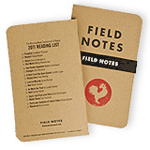by Aimee Bender
Doubleday
Buy at Powell’s »March 11, 2011
Jennifer Egan
Paul Murray
Judged by
A Visit From the Goon Squad is about all sorts of people in all sorts of places. An art professor searches for a wayward niece in Naples; a closeted gay man chews up some ecstasy and jumps into the East River; a kid on safari with his record-producer-dad watches a lioness gnaw on the face of a bassist. There’s even a creepy dictator who wears a ridiculous hat to soften his image. (“How could a man in a fuzzy blue hat have used human bones to pave his roads?”)
In short, Egan’s book is a terrific feat of ventriloquism, composed of 13 short stories that seesaw back and forth through time and interconnect multiple characters, particularly the lives of a music producer named Bennie and his assistant, Sasha.
But it’s so much more than my lame synopsis—and more than a sum of diverse narrators and characters. The structure of Goon Squad reminds me in many ways of Joan Silber’s Ideas of Heaven, a lovely collection of six stories in which a minor character in one story becomes the narrator of the next. In Goon Squad, Egan focuses on multiplicity as well as totality; her approach isn’t about eliminating everything that’s irrelevant to a central narrative in the way so many novels are. It’s more about dropping a giant, rotating, mirror ball into a pair of lives and watching it turn.
 Buy anything from Field Notes from now until the end of the ToB and receive a special “reading list” memo book free, while they last. Use coupon code ROOSTER.
Buy anything from Field Notes from now until the end of the ToB and receive a special “reading list” memo book free, while they last. Use coupon code ROOSTER.Silber called her book a “ring of stories” and that’s how I began to think of Goon Squad—as a ring. As you travel around the ring, you watch Bennie and Sasha be kids, compromise, grow up, fail, have kids, make strides, fail again. “Time’s a goon, right?” Bennie says at one point. “You gonna let that goon push you around?”
By the time I got through the book’s penultimate chapter, a breathtaking short story told entirely through PowerPoint slides, there were tears in my eyes.
Skippy Dies is a pretty dazzling book, too. It’s a gigantic-hearted, multi-tonal, 661-page novel about a cast of boys and teachers at an uberprivileged all-boys school in Ireland. Each of Paul Murray’s short, unnumbered chapters flicks between a number of points-of-view: 21 (I think) in all.
There’re plenty of 14-year-olds in this novel: diminutive, dreamy Skippy; his geeky and earnest roommate Ruprecht; imbecilic, comic-relief Mario; sociopathic, Ritalin-dealing Carl. There are lovable adults here, too, folks like the history teacher Howard the Coward, a 28-year-old who “can hardly take a step without falling into a trapdoor into his own past,” and cranky Father Green who cheerlessly performs good works and lets his terror of retirement overwhelm him. Most importantly, Murray invests all of his stereotypes—the limping swim coach, the beautiful Geography substitute, the zealous Acting Principal, the pedophilic old priest—with a pulsing dignity.
Almost everywhere in this novel Murray is playful. He can mix high and low tones like few writers, and I cannot remember enjoying a novel about teenagers this much. Perhaps the preeminent effect of the book is to show a reader that we never really transcend our childhoods, that the lives of adults are just as full of striving and burning and yearning as the lives of the adolescents we never fully stopped being.
Here’s Howard the Coward:
Is everyone in the world at the same game, trying to pass himself off as something he is not? Could the dark truth be that the system is composed of individual units none of whom really knows what he is doing, who emerge from school and slide into the templates offered to them by accident of birth—banker, doctor, hotelier, salesman, just as tonight they’d separated according to prearranged, invisible symmetries, nerds and jocks, skanks and studs…
So, crap. I loved both the books. I suppose it had to happen to me one of these years in this strange and wonderful tournament.
One of the things I enjoy most about being a fiction writer is the unpredictability of what each individual reader brings to the work. If I write a story about a character with a stutter, say, a reader with a speech impediment will probably react to the story differently than a reader without one. If Jennifer Egan writes a book about time overwhelming characters and turning them into parents, a reader like me, who feels himself being overwhelmed by time and being turned into a parent, will plug into it in a certain way.
If I’d read Skippy Dies in high school, or college, or maybe just last year, it would have slayed me. I would have handed out copies to all my friends. I still might do that.
But—and only because I’m in the absurd position of saying one very good book is better than another very good book—I’ll say that A Visit From the Goon Squad was a slightly more relevant book for this particular reader at this particular moment.
Anthony Doerr is currently a Fellow of the John Simon Guggenheim Memorial Foundation. His most recent book is Memory Wall. Known connections to this year’s contenders: “I’m friends with Aimee Bender.”